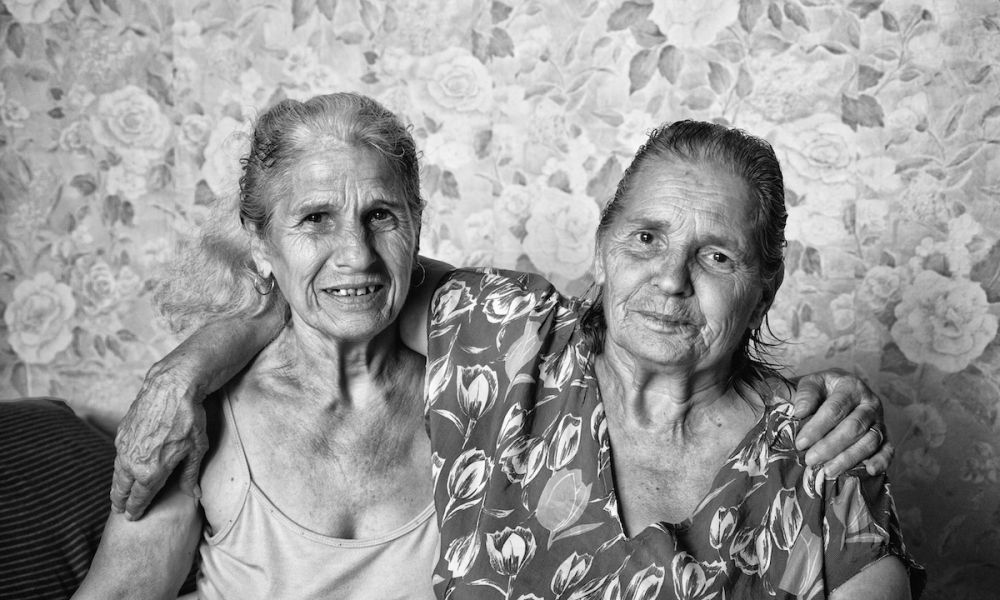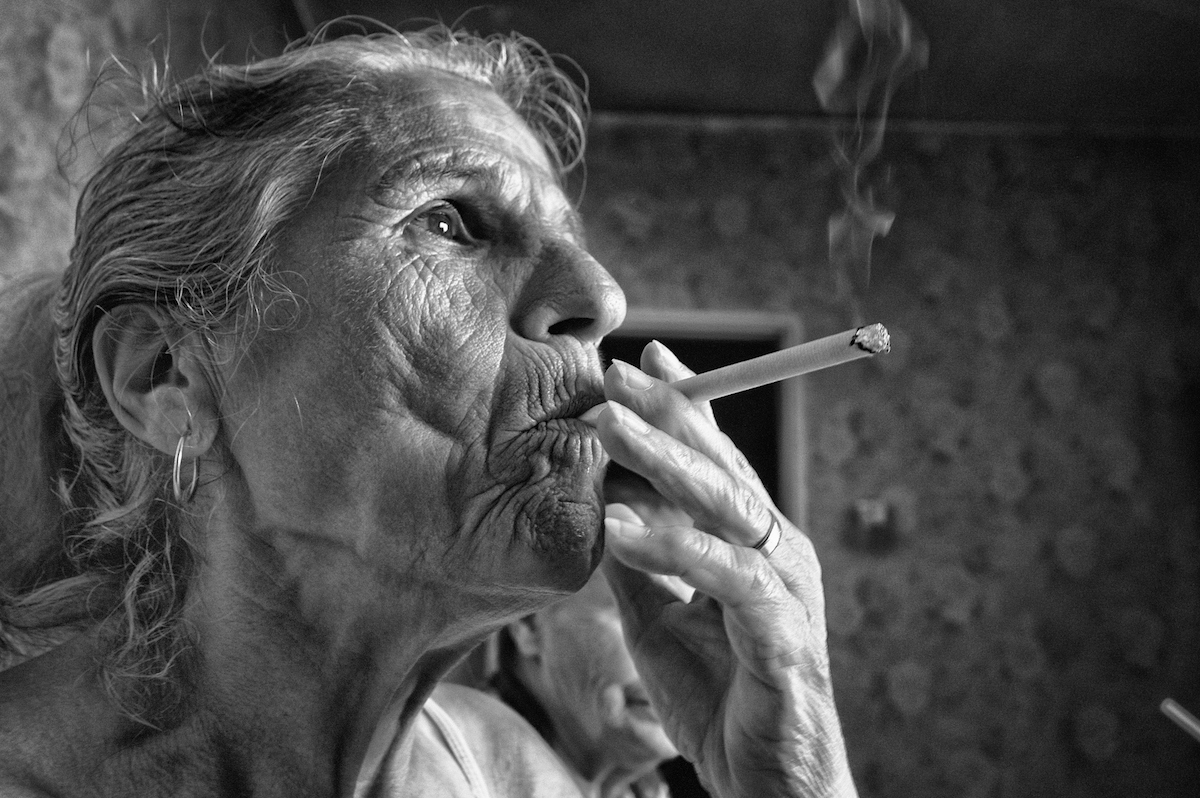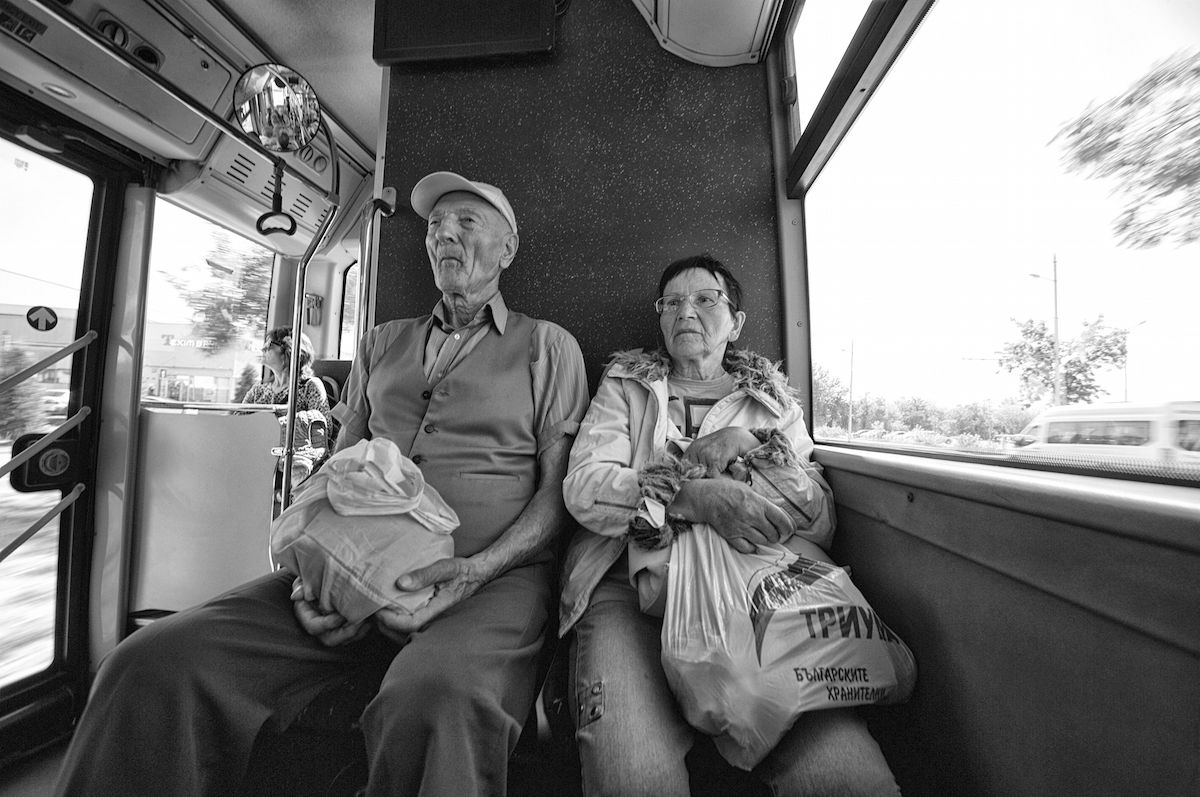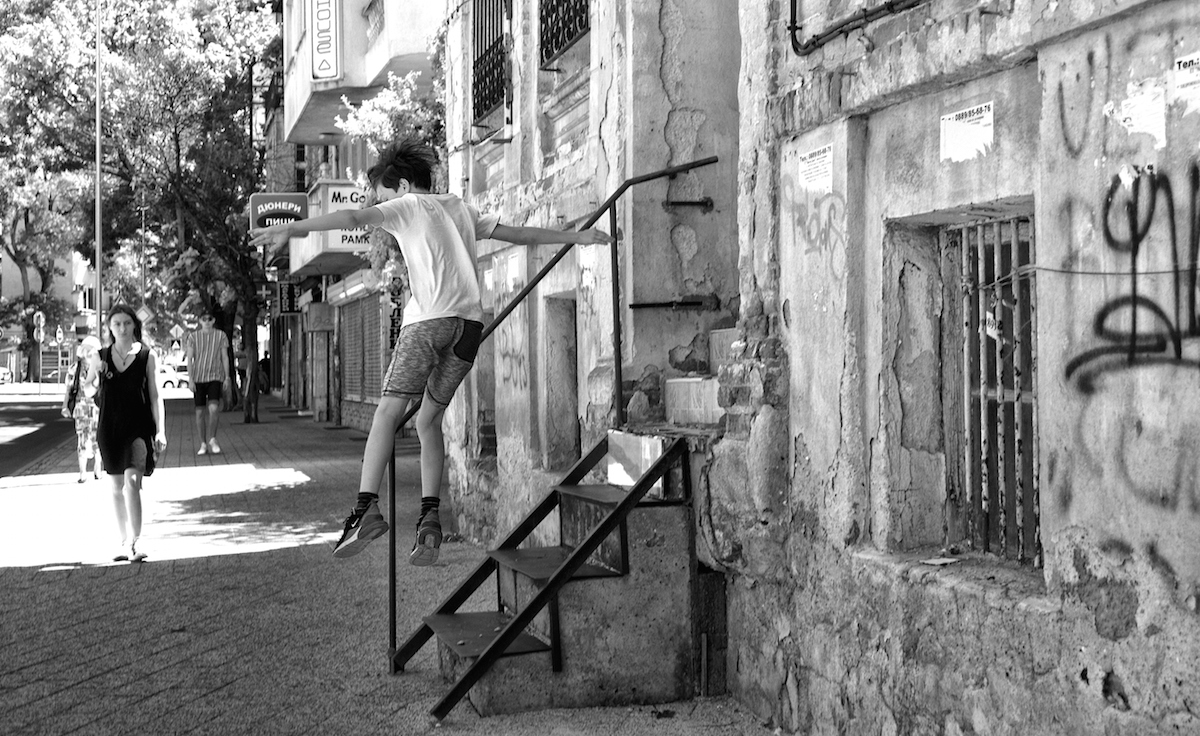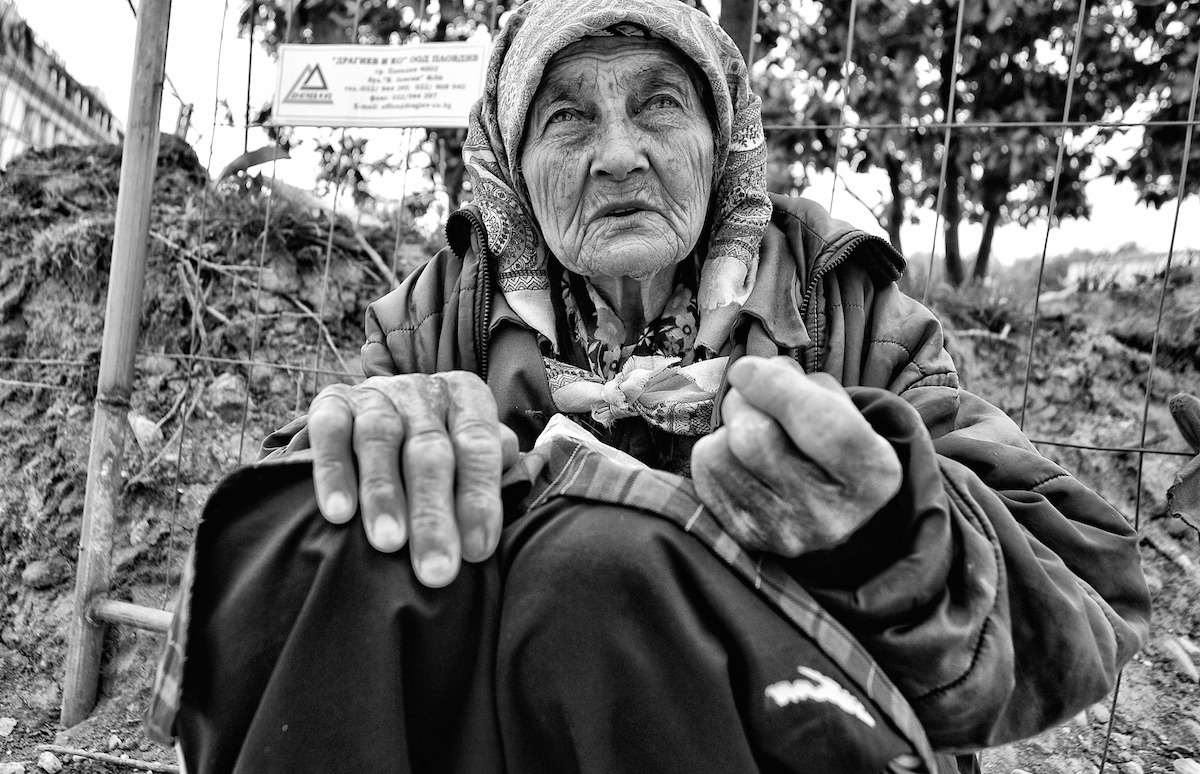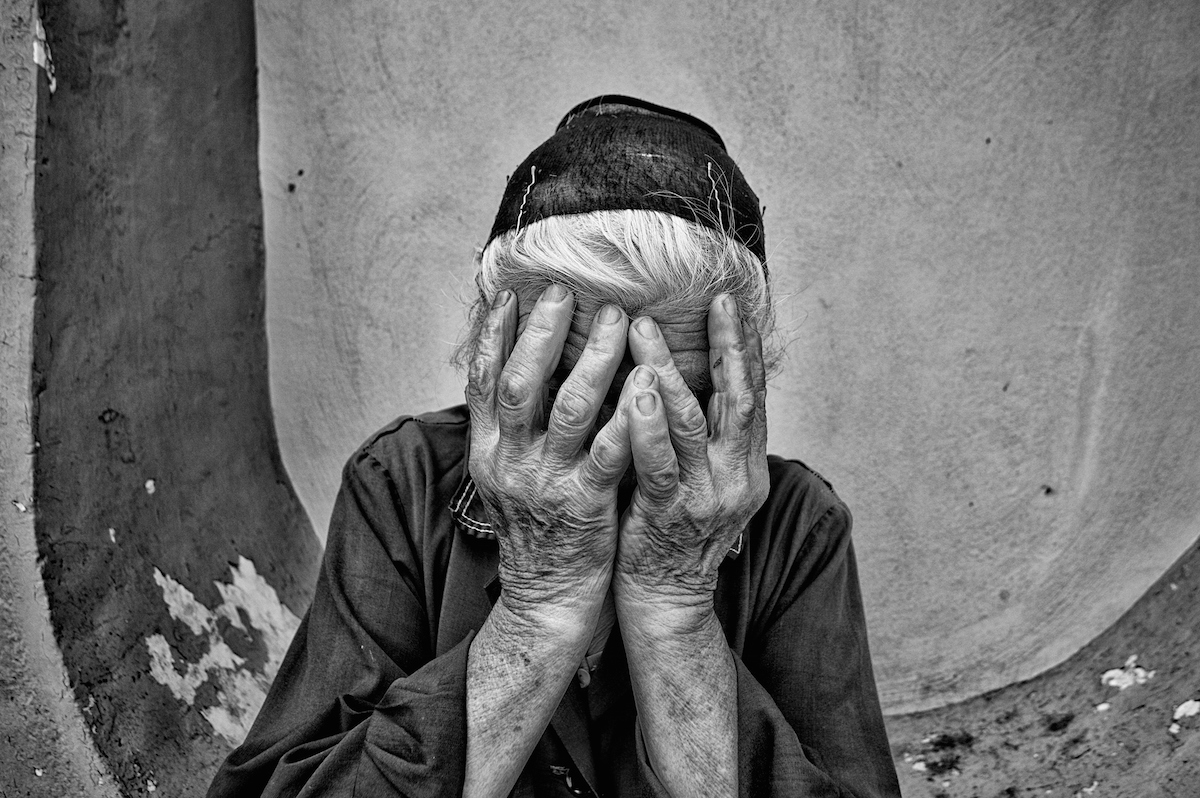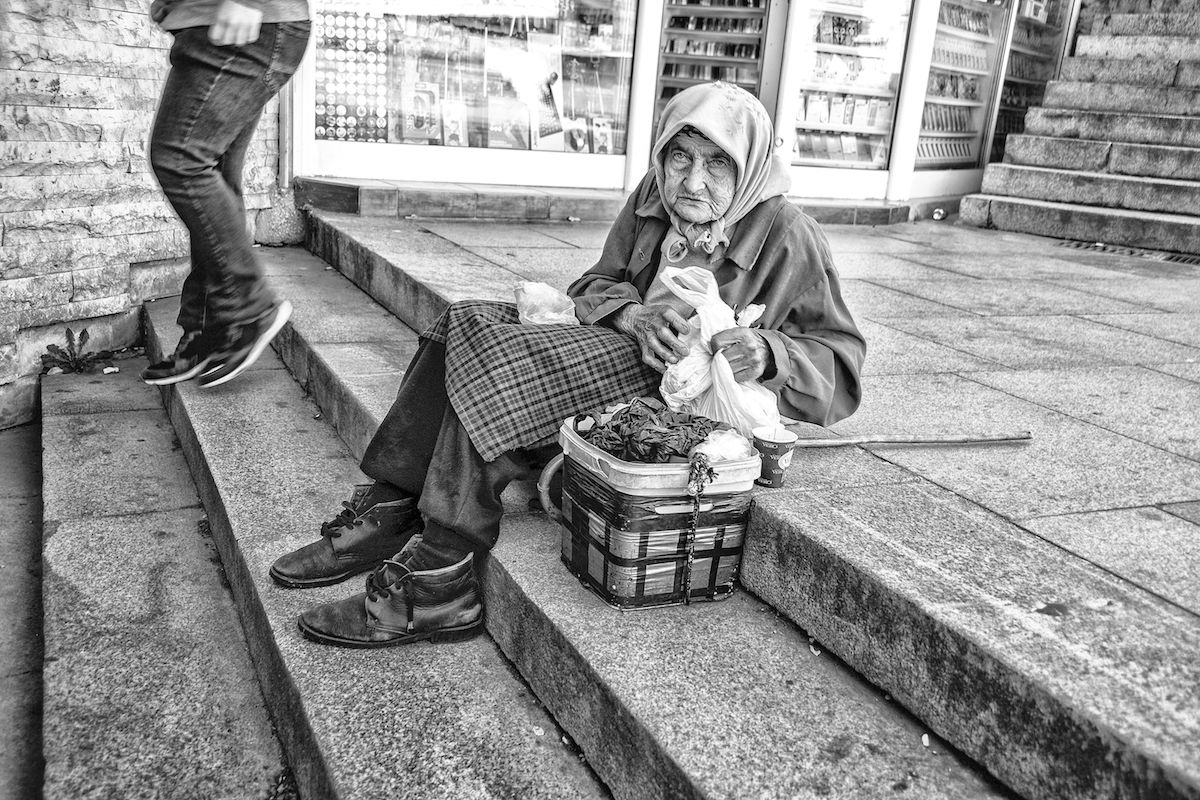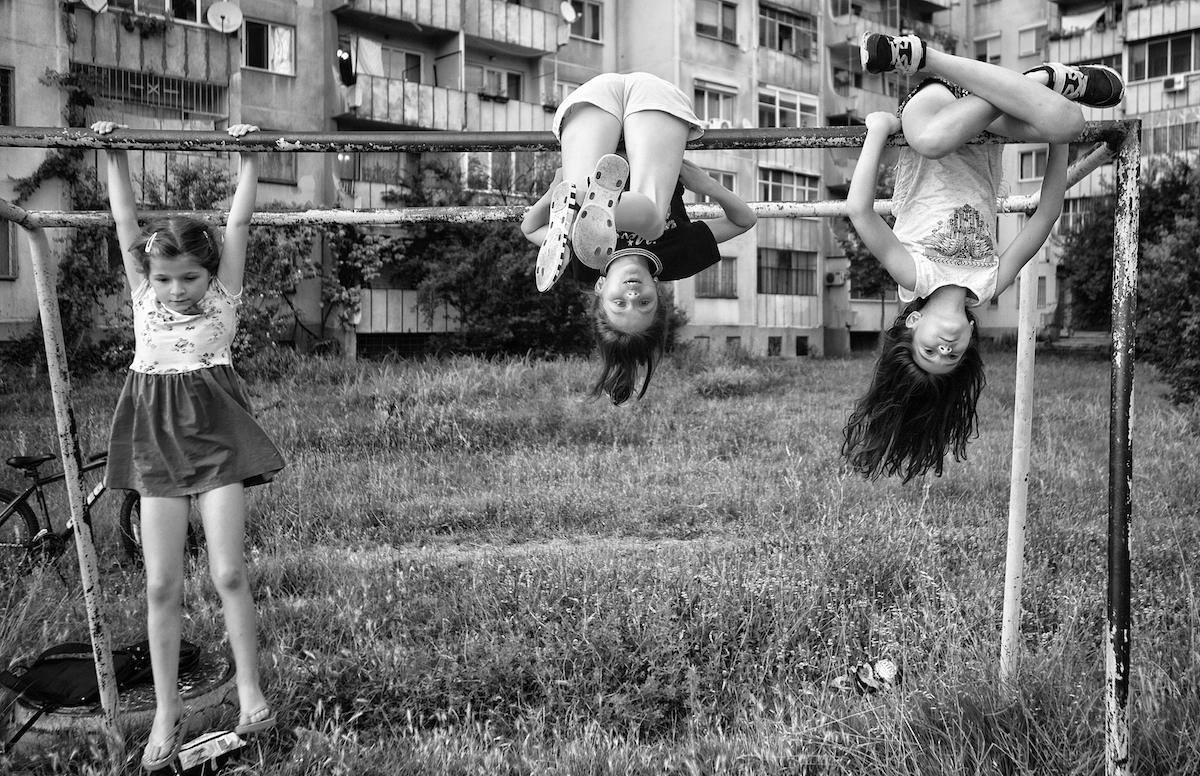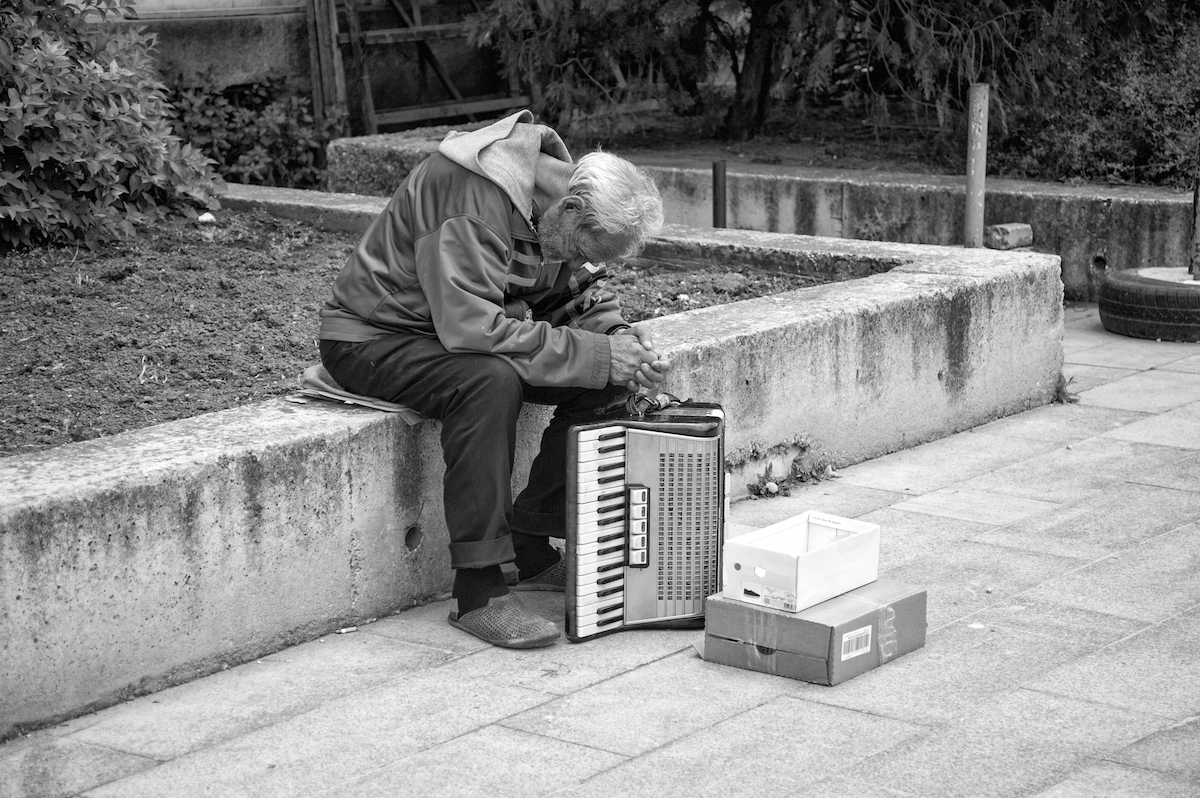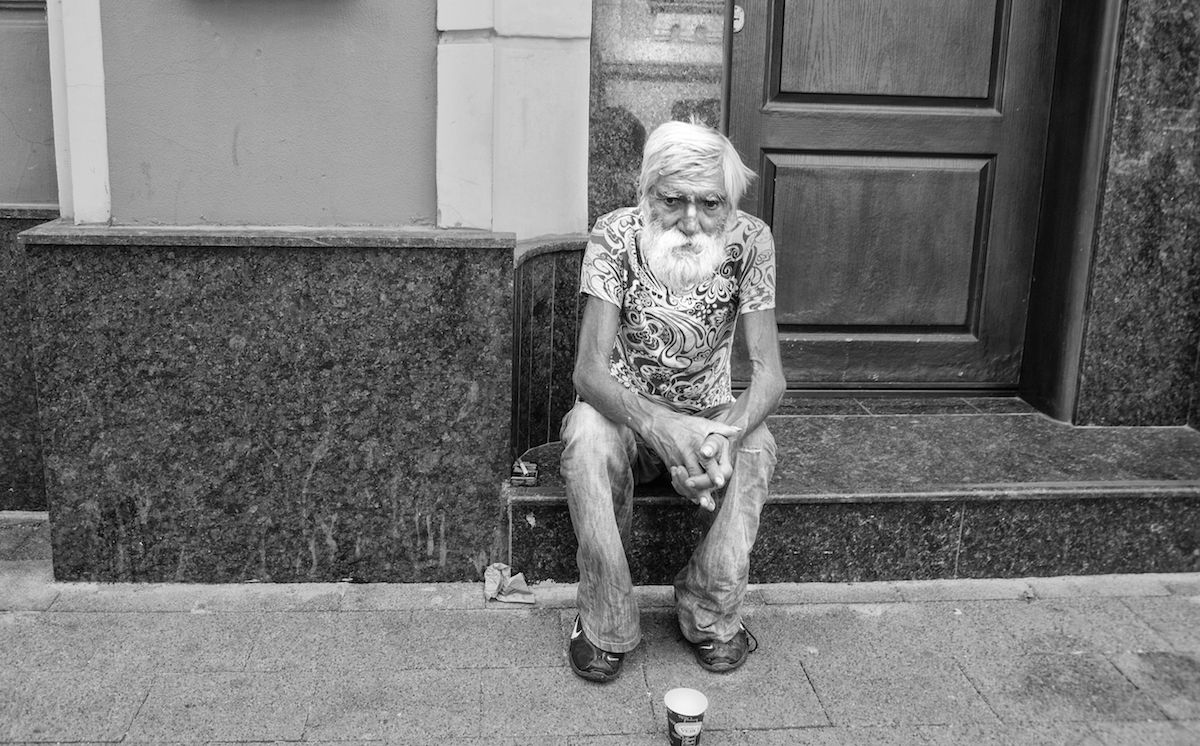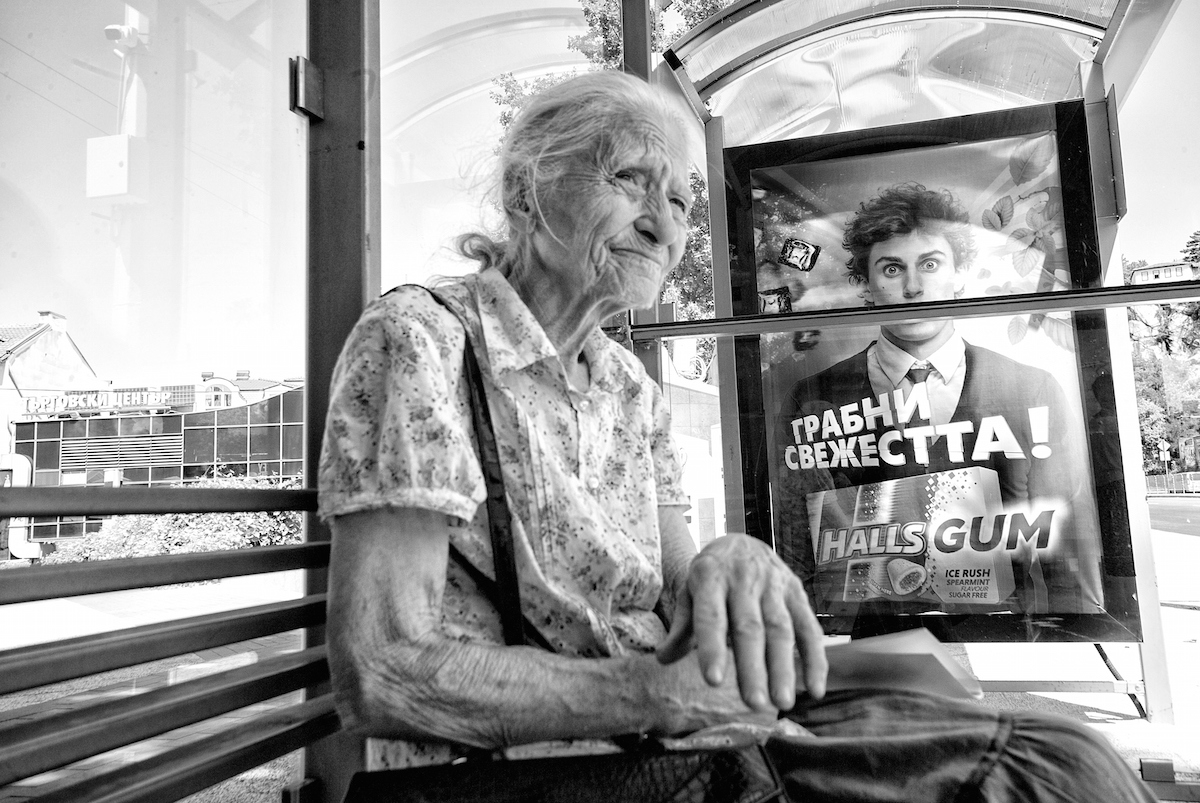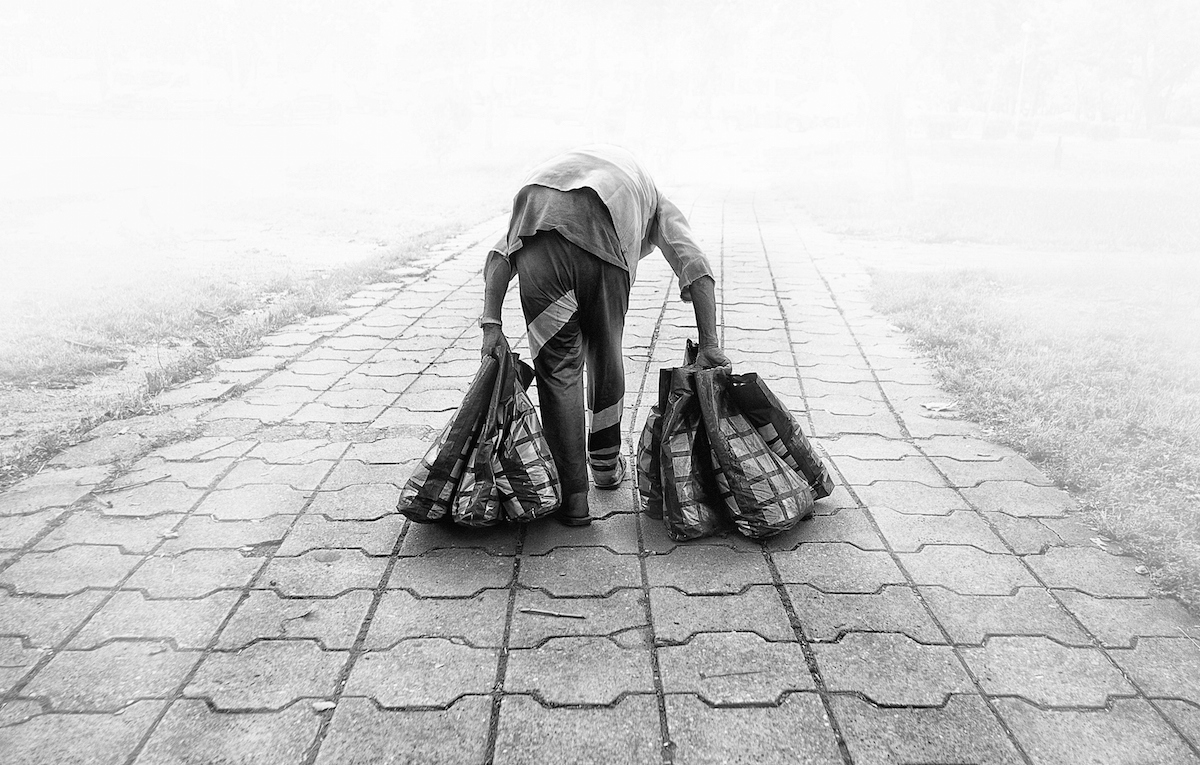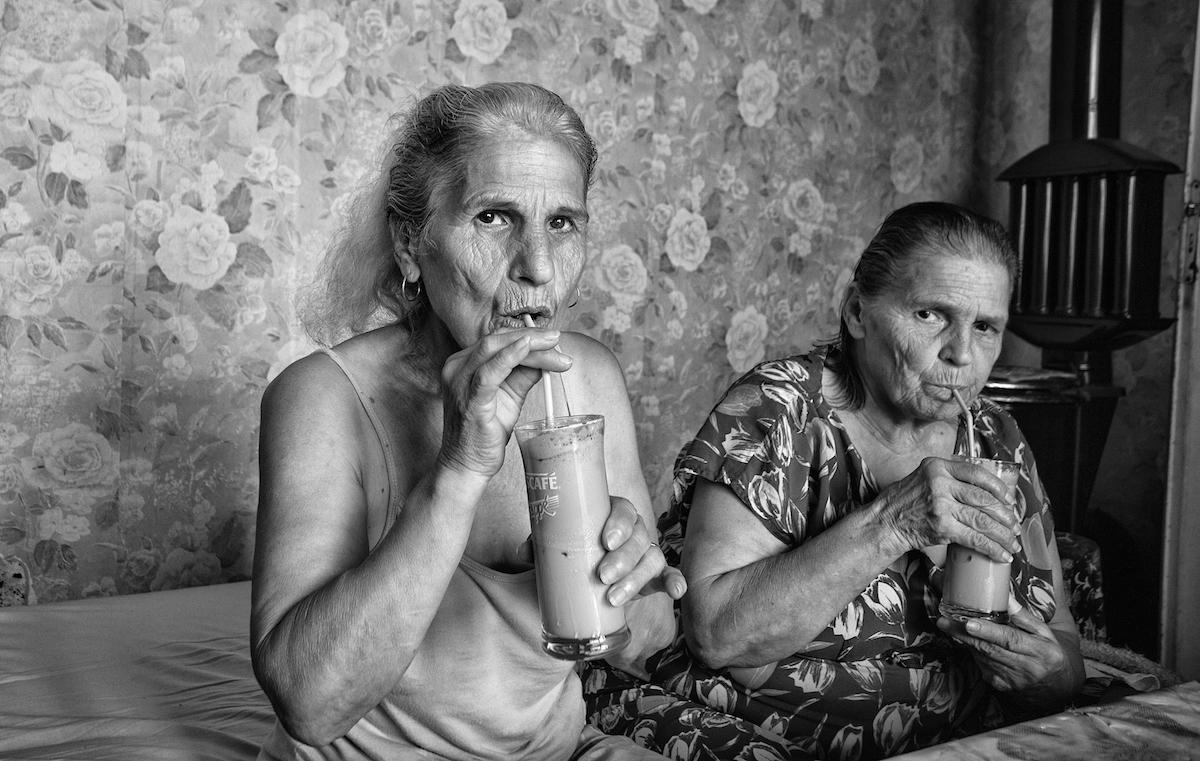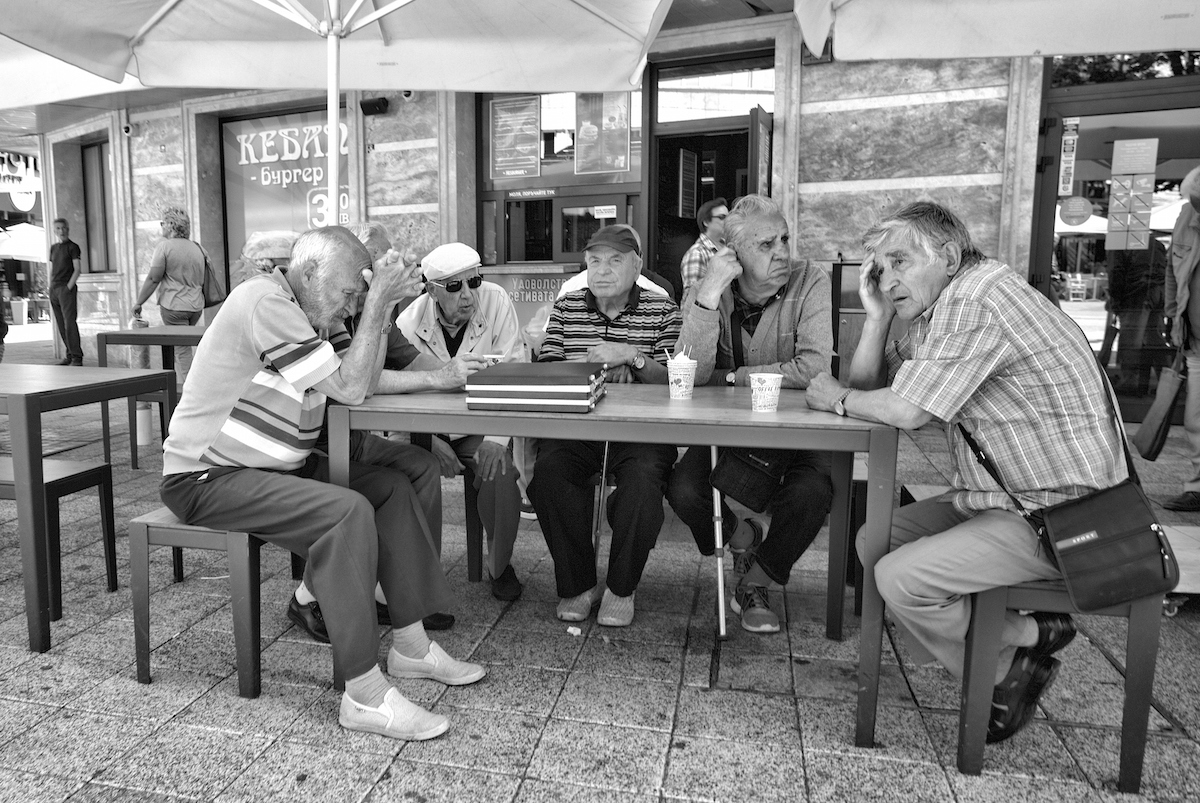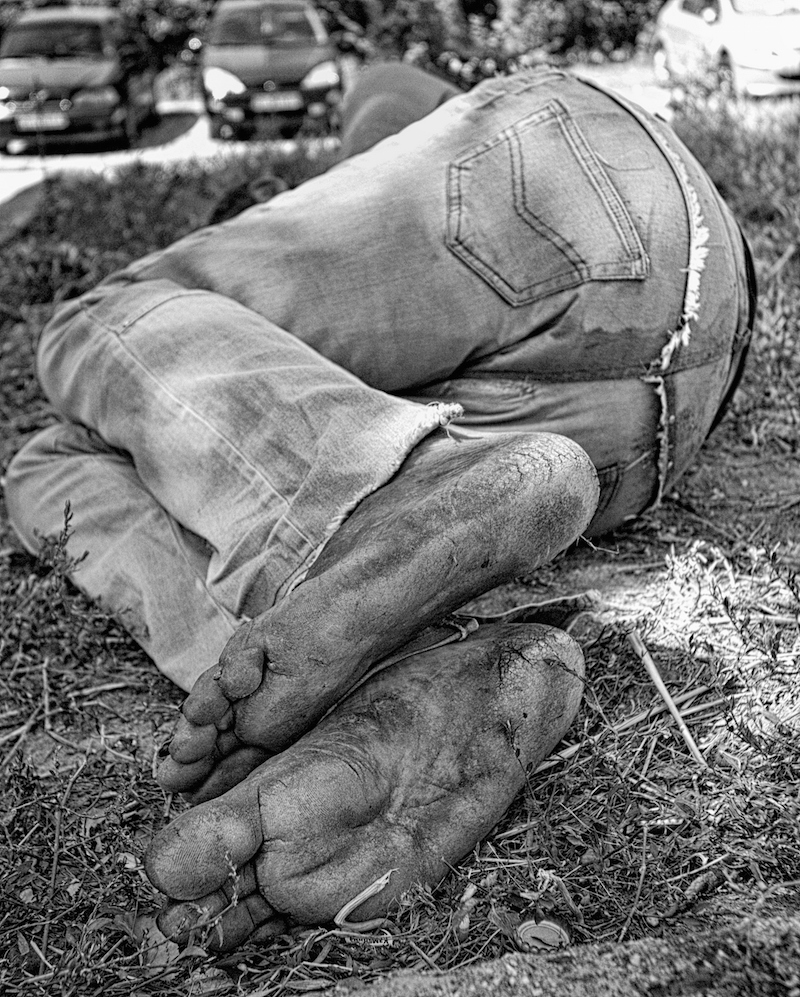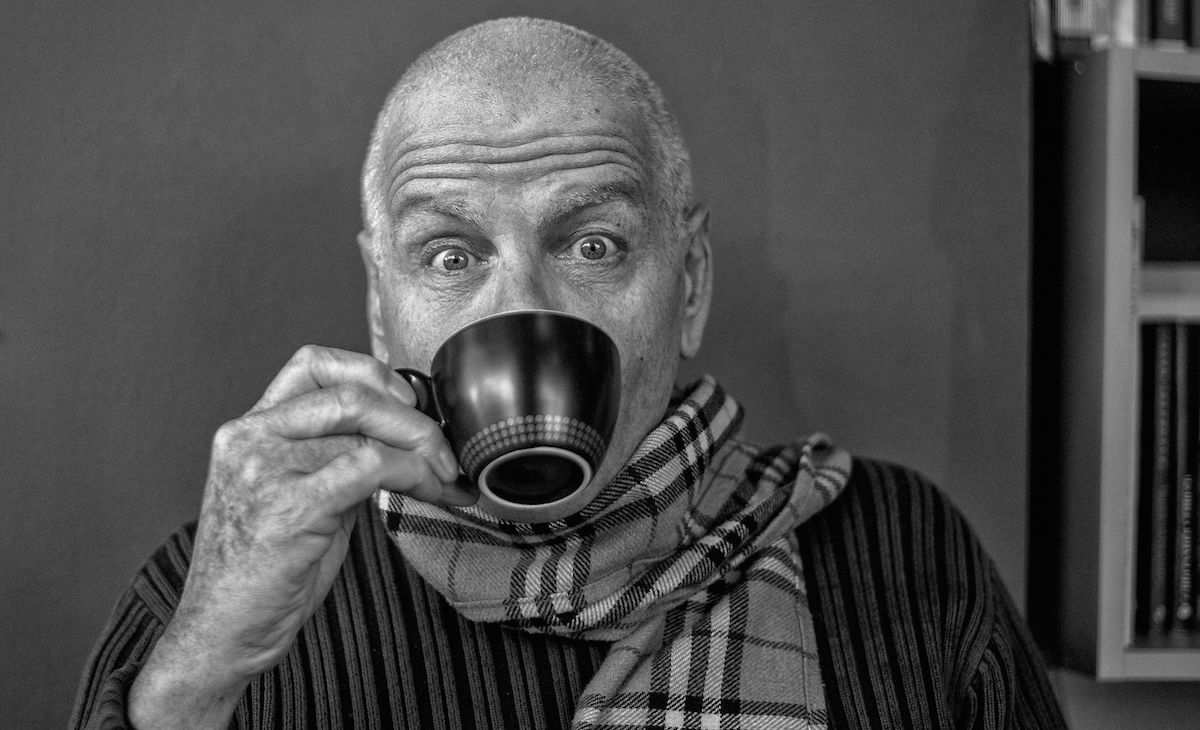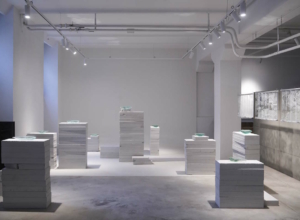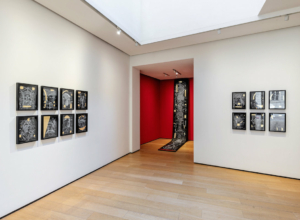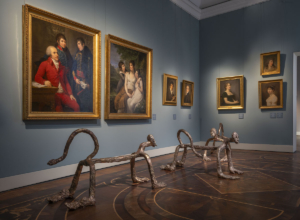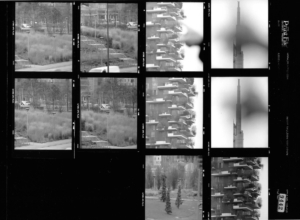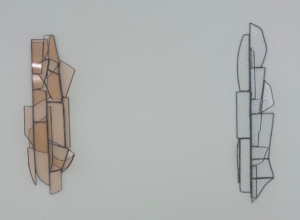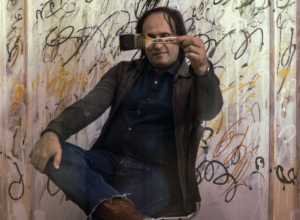Questo progetto personale del fotografo Krasi Petev compone un’autobiografia collettiva, un frammentato ritratto di uno degli scenari più interessanti in cui i segni e i valori del vivere emergono in tutta la loro tensione emotiva. La sua ricognizione fotografica, condotta per le strade della Bulgaria, guida lo spettatore attraverso un viaggio alla scoperta dell’essenza più profonda e semplice dell’essere umano.
The personal project by the photographer Krasi Petev composes a collective autobiography, a fragmented portrait of one of the most interesting sceneries where the signs and values of life arise in its emotional aspirations. His photographic reconnaissance on the streets of Bulgaria guides the audience through a journey of discovery of the deepest and simplest essence of the human being.
Francesca Interlenghi: Come è iniziata la tua carriera di fotografo?
Krasi Petev: Ho iniziato negli anni Ottanta con le vecchie macchine fotografiche. Nel 1989 ho acquistato la mia prima Canon F1: una fotocamera da 35 mm. A quel tempo, la fotografia su pellicola era una forma d’arte: un laboratorio domestico in cui si gestivano le preparazioni chimiche, in cui era necessario avere pazienza e una visione chiara del risultato finale sebbene si lavorasse alla cieca. Non mancavano nervosismo e frequenti errori. Ho scattato molto in Europa e in Canada, poi sono arrivate le macchine digitali e da quel momento non ho più smesso di usarle.
Francesca Interlenghi: What do the beginnings of Krasi Petev, the photographer look like?
Krasi Petev: I started in the 1980’s, with old tape cameras. In 1989 I bought my first Canon F1 – a 35 mm camera. At that time, film photography was all art – a home lab, handling of chemical preparations, sharp vision in the dark, patience, many nerves and mistakes. I shot a lot in Europe and Canada. Later, digital cameras came in and I continue using them to this day.
Francesca: Mentre la produzione fotografica aumenta in maniera sfrenata e il numero di quelli che alla fotografia si dedicano cresce sempre più, tu sembri avere ancora la convinzione – apparentemente desueta – di fotografare semplicemente le persone. Descriverei il tuo lavoro nel suo insieme come il tentativo di cogliere e cristallizzare in forma di immagine innumerevoli sentimenti che non sono individuali ma collettivi, non eccezionali, ma comuni. Cosa significa la fotografia per te?
Krasi: La fotografia è sicuramente il mio passatempo ma è anche e soprattutto il mio stile di vita. Ogni fotografia è una storia che registra l’epoca in cui l’artista si trova ed è un vivido riflesso della realtà sociale in cui viviamo. Conduco senza pretese la mia vita di fotografo e non ho a che fare con nessuna struttura organizzata.
Francesca: While the photographic wild production continues and its participant population grows, you still hold the now seemingly ancient belief of simply capturing people. I would describe your work as a whole as the attempt to seize and secure in image countless feelings that are not individual but collective, not exceptional, but common. What does photography mean to you?
Krasi: Photography is my hobby and most of all, my way of life. Photography is a story, that captures the era in which the artist lived and is a vivid reflection of the reality of the society in which we live in. I live modestly and do not run into the photographic guild
Francesca: La tua fotografia nasce dalla tua passione e dall’interesse per le persone. Lo sguardo, il segno del tempo che è passato, il viso – il luogo per eccellenza dell’espressione dei sentimenti, e il suo equivalente artistico, il ritratto – diventano i “topoi” del tuo lavoro, lungo una sottile linea invisibile che li collega. Perché l’essere umano è così importante per te? E cosa ti ha portato a coglierne sistematicamente l’ esuberante varietà?
Krasi: Le loro emozioni… esprimono tutto. Una foto non può mentire. Dal viso traspare, senza inganno, la natura di una persona. Mi piace fotografare la gente e la loro condizione.
Francesca: Your work originates from your passion and interest in people photography. The gaze, the sign of the time that has passed, the face – the locus for excellence in the expression of feelings, and its artistic equivalent, the portrait – become the “topoi” of your work, following a thin invisible line that connects them. Why is the human being so important to you? And what brought you to systematically capture its exuberant variety?
Krasi: Their emotions… they express everything. The photo cannot be deceptive. The face is a reflection of the character. I like to shoot people and their condition.
Francesca: Nella conversazione preparatoria a questa intervista, mi hai detto di essere “un fotografo triste” (è stato allora che ho ammesso di essere “una scrittrice triste”). Cosa intendevi dirmi esattamente?
Krasi: Mi considero un fotografo triste per il mio profondo senso di giustizia. Scatto principalmente per strada perché molto tempo della mia vita lo trascorro chiacchierando per la strada. Se le persone uscissero dalle loro auto e dedicassero gran parte della loro giornata in mezzo agli altri vedrebbero molte cose di cui non sospettavano nemmeno l’esistenza: uomini e donne dimenticati a causa delle ingiustizie subite, questo mi rende molto triste. Fotografando solo in bianco e nero desidero migliorare l’aspetto delle persone; la mia è una fotografia con uno scopo puramente sociale.
Francesca: In the conversation we had in the preparation for this interview, you told me you are “a sad photographer” (it was then that I admitted to being “a sad writer”). Could you tell me more about this?
Krasi: I consider myself as a sad photographer, because of my keen sense of justice. I shoot mostly on the street because I spend a lot of time chatting on the street in my life. If people get out of their cars and spend much of their day amongst other people, they will see many things they did not expect existed – forgotten people, because of personal injustice. This makes me very sad, but I try to show people the other side of black and white. That’s why I only shoot in black and white. My wish is to make people look better; my photography is purely social.
Francesca: Parlando del tuo approccio alla fotografia, che ruolo hanno il mezzo e la tecnica nel tuo lavoro? Perché ritieni che il tuo obiettivo sia più facilmente raggiungibile attraverso il bianco e nero anziché il colore?
Krasi: E’ un’abitudine radicata ormai. La fotografia in bianco e nero è più espressiva secondo me, invece il colore distrae e lo trovo più adatto alla pubblicità. La rimozione del colore da un’immagine aiuta lo spettatore a concentrarsi sullo stato emotivo del soggetto. Il bianco e nero consente al pubblico di vedere il volto di chi è ritratto e di leggere i suoi occhi senza alcuna distrazione. La street photography deve essere rapida, bisogna cogliere l’istante e scattare. Molto raramente mi avvalgo delle tecniche di studio o metto in posa la gente. La fotografia in bianco e nero è come la musica che esce da una radio: bisogna usare la propria immaginazione.
Francesca: Talking about your approach to photography, what role do the medium and technique have in your work? How do you feel your goal is more achievable through black and white rather than color?
Krasi: I’m so used to it. Black and white photography is more expressive to me. Color distracts, it is suitable for advertisements. Removing color from a picture helps the viewer to focus on a subject’s emotional state. Black and white lets the audience see the subject’s face and read his or her eyes without distraction. The street needs to be shot instantly and quickly. I very rarely use positional photography and studio techniques. Black and white photography is like a radio player, the viewer must use his or her imagination.
Francesca: Quando pensi di aver fatto una bella foto? Quando senti di aver raggiunto una nota magica?
Krasi: Cerco sempre di sintonizzarmi con le persone che ritraggo. Cerco di svelare le loro emozioni e capisco subito quando una foto ha qualcosa di magico. Ho un occhio molto preciso e perfettamente allenato, sono capace di notare rapidamente gli oggetti interessanti e so coglierli al momento giusto. La street photography è come un’operazione militare! Bisogna scattare in fretta!
Francesca: When do you think you took a good picture? When do you feel you hit the magic note?
Krasi: I always try to channel into the people I shoot. I try to get their emotions out and I know immediately when I have hit the magic note. I have a very precise and perfectly trained eye and I quickly notice interesting objects and capture them at the right moment. Street photography is like a military operation! You need to shoot fast!
Francesca: Prossimi progetti? Cosa farai per continuare ad alimentare la tua passione per la fotografia?
Krasi: Continuerò a dedicarmi alla street photography con lo scopo di cristallizzare la realtà. Il mio obiettivo è realizzare lo scatto perfetto per strada. Continuerò a documentare lo stato sociale, guardandolo dal mio punto di vista.
Francesca: Do you have any upcoming projects? What steps will you take in order to nourish your passion?
Krasi: My project continues to be on the street with the aim to crystallize the reality. My goal is to achieve the perfect shot on the street. I’ll keep on trying to express the state of society from my point of view.
Krasi Petev, portrait
My special thanks to Krasi Petev who kindly gave the interview to me.


